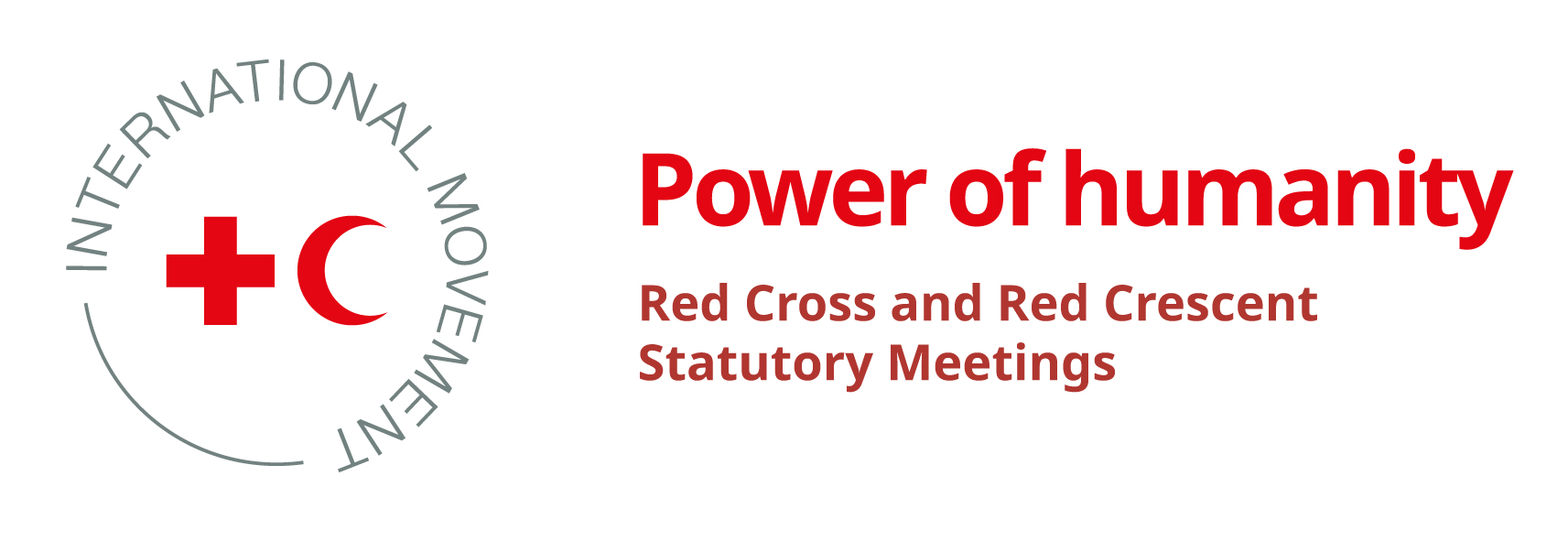Trust in humanitarian action
Trust is the foundation of humanitarian action. The Movement depends on trust – of the people and communities it serves, of the authorities and of the general public – for access to people in need, for support and for respect for our mission.
Trust in humanitarian action was put on the agenda of the 33rd International Conference because of the declining trust in institutions and governments, an increase in public scrutiny, and calls for stronger integrity and accountability. This Commission explored how the International Red Cross and Red Crescent Movement can work together with States to maintain and strengthen trust in principled humanitarian action.
Trust in humanitarian action was put on the agenda of the 33rd International Conference because of the declining trust in institutions and governments, an increase in public scrutiny, and calls for stronger integrity and accountability. This Commission explored how the International Red Cross and Red Crescent Movement can work together with States to maintain and strengthen trust in principled humanitarian action.
This commission consisted of an opening plenary, a reconvening plenary which examined the themes of the previous days through the lens of trust, and three spotlight sessions on the following topics:
-
1. Trust through community engagement and accountability: what fundamental changes are needed?
Community engagement and accountability (CEA) is increasingly recognized as an essential priority –one that is pivotal to operational excellence, building acceptance and trust, and contributing to long-term community resilience. It ensures that local actors and communities are equal partners in humanitarian action and that programmes and operations are informed by the voices of the most vulnerable. While significant efforts have been undertaken to ensure that Movement actors commit to strengthening and improving community engagement and accountability, fundamental changes are still needed to get the people we serve more involved and ensure we are more accountable to them.
This spotlight session sought to discuss the fundamental changes that are needed to increase the participation of communities and ensure we are more accountable to them. The discussion focused on developing a shared understanding of the link between trust and community engagement, on sharing successful initiatives and on identifying what needs to be done collectively.
Related documents
• Resolution 1, “Movement-wide commitments for community engagement and accountability” (CD/19/R1) and its background document (CD/19/6)
• Model pledge: Building and reinforcing trust in humanitarian action through community engagement and accountability
• Briefs on key ingredients for successful community engagement -
2. Integrity and risk sharing
The components of the Movement must meet the highest standards of integrity, as unethical behaviour can greatly erode the public’s trust in humanitarian action, including among the communities that the Movement serves. That is why the Movement adheres to the Fundamental Principles, the Code of Conduct and comprehensive statutory, regulatory and policy framework requirements, which are the foundation of principled humanitarian action. Donors also have a role to play by incentivizing and supporting integrity-related processes and mechanisms, and at the same time ensuring that their compliance requirements do not result in a transfer of risk that hampers an organization’s ability to carry out principled humanitarian work.
This session identified connections and tension points in humanitarian actors’ experiences regarding integrity and started a dialogue on what collective steps needed to be taken.
Related documents
• Resolution 2, “Statement on integrity of the International Red Cross and Red Crescent Movement” (CD/19/R2)
• IFRC Strategy 2030 (chapter on ensuring trust and accountability) -
3. Creating a conducive environment for principled humanitarian action
Trust requires principled and effective humanitarian action. Principled and effective humanitarian action requires a conducive environment; and States’ practices can either create a conducive environment or hinder it.
The session explored how to build a conducive environment for principled humanitarian action at the global, national, and local levels, by clarifying roles, identifying key challenges and impacts, showcasing good practice and exploring collective responses.
Related documents
• LeavingMillionsNo One Behind, World Disasters Report, IFRC, 2018




